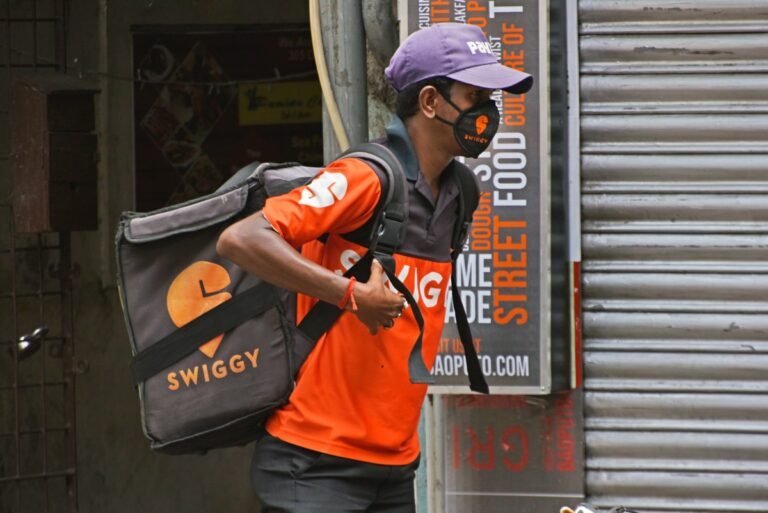
Baron Capital, an investor in Indian food delivery startup Swiggy, has increased the value of its stake in the Indian firm, implying a valuation of $12.16 billion, surpassing the $10.7 billion post-money valuation at which Swiggy secured funding in early 2022.
The valuation uptick at the end of December is a noteworthy development for Swiggy and, more broadly, the Indian startup ecosystem.
This is particularly significant given that Swiggy’s valuation had previously been marked down to a low of $5.5 billion.
Swiggy commands roughly 45% market share in the Indian food delivery sector and is “well positioned to benefit from structural growth in online food delivery in India,” Baron Capital wrote in a separate filing.
Swiggy, which is also a key player in the instant-grocery delivery space in India, is increasingly broadening its offerings.

It has heavily invested in its supply chain infrastructure over the years, with a particular focus on reducing delivery times for grocery items.
Quick-commerce accounts for about 40% of the online grocery delivery category, the analysts said.
“Quick commerce with a potential TAM of ~$45 billion (~7% of the grocery market of $620 billion),” they wrote.
We estimate quick-commerce GMV to grow to $6.2 billion by 2025.”Indian news outlet Entrackr first reported some of the details of Flipkart’s instant commerce play Thursday.
We constantly work towards delivering a wide range of products to customers with speed,” a Flipkart spokesperson said.
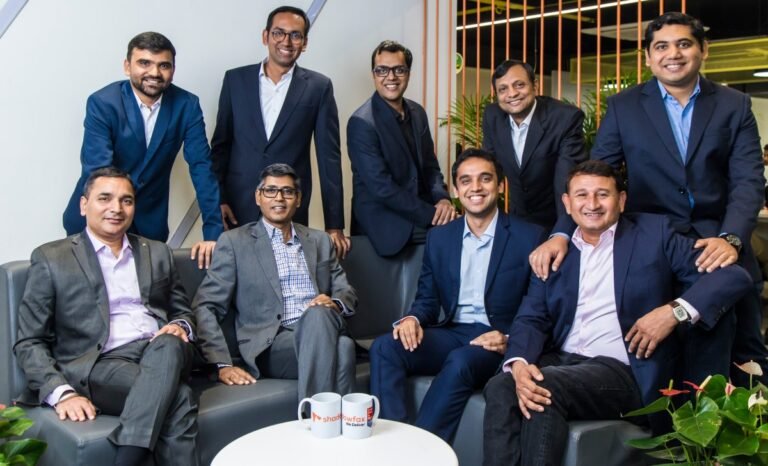
Shadowfax, one of the largest logistics service providers to hyper-local and on-demand delivery businesses in India, has raised $100 million in a new funding round as it clocks an yearly growth of 35%.
Shadowfax says it makes over 2 million packages delivery each day and has amassed over 3.5 million registered users.
Shadowfax operates a logistics and delivery network of over 125,000 monthly active delivery personnels, and works with numerous firms including Flipkart, Meesho and many direct-to-consumer brands.
Shadowfax is Mirae Asset’s first investment in India and the venture firm has participated in each subsequent round.
“We believe that logistics is fundamental to ecommerce and hyperlocal commerce and that it enables the growth of these markets.

This “deepened” partnership will focus on commercial self-driving Ram delivery vans, a target that was first announced in 2020 and promptly faded from public view.
Discussions on this “improved” deal have focused, in part, on a crux around driverless delivery: how does the package get from the vehicle to the customer?
Waymo, which is owned by Google parent-company Alphabet, currently doesn’t operate a commercial delivery service using its self-driving vehicles.
That deal did include a future plan to include delivery via Uber Eats, but as of today, it has not launched, according to a Waymo spokesperson.
Under the deal, Fiat Chrysler — now known as Stellantis — would handle the manufacturing and provide Waymo with minivans that built in redundancies designed for autonomous driving.
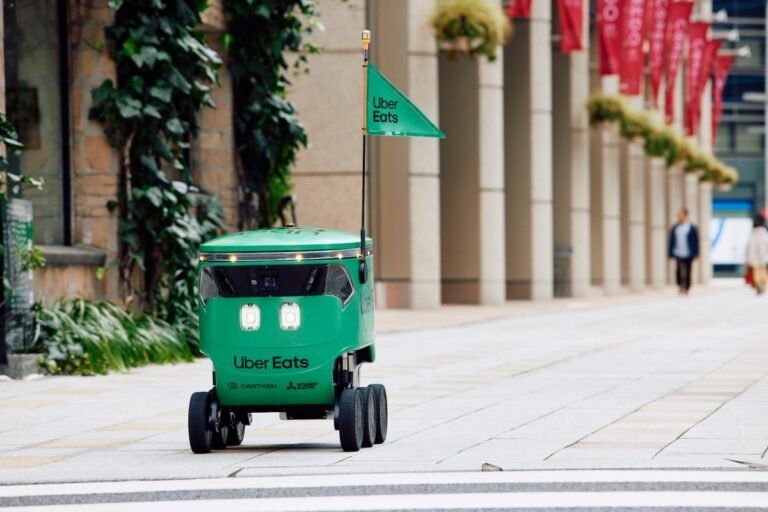
Uber, along with partners Mitsubishi Electric and autonomous robotics startup Cartken, are launching a service in Japan that will use self-driving sidewalk robots to deliver food to customers.
Uber and Cartken, a startup founded in 2019 by former Google engineers behind the short-lived Bookbot, already operate a delivery service together in Fairfax, Virginia and Miami.
Cartken’s autonomous sidewalk robot, known as Model C, will be used for the delivery service.
Cartken’s teleoperations interface will be used by Mitsubishi Electric employees who are trained in Cartken’s remote guidance system, according to an Uber spokesperson.
“We hope that this newly announced initiative will serve as a catalyst for the spread of robot delivery services in Japan,” Tanaka said.

Veho, a package delivery company, confirmed that it laid off 19% of its employee headcount, or about 65 jobs.
As first reported by The Information, these layoffs came after Veho grew revenue nearly 90% in 2023.
That was after announcing $125 million in Series A funding two months prior, the round that pushed Veho into unicorn territory.
At that time, Veho said it had 910 employees across corporate and warehouse teams and was looking to fill additional positions.
Veho remains optimistic, telling TechCrunch that its capital position “is very strong and we are building on our strong momentum and record peak season in 2023.”
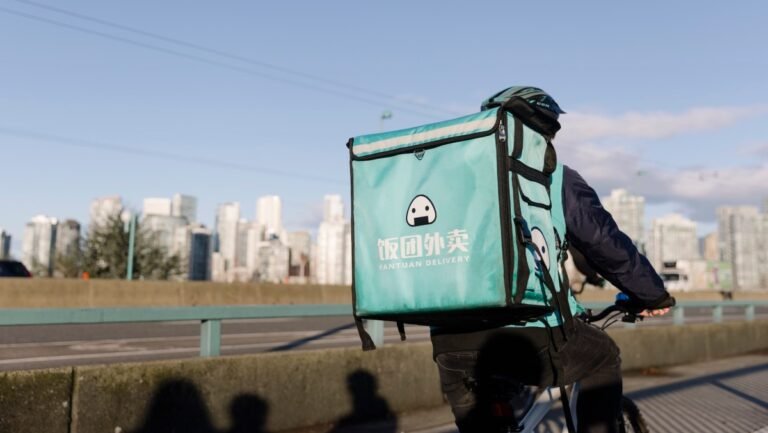
Fantuan, a Vancouver, Canada-based Asian food delivery company, announced it acquired Chowbus’ delivery business line.
In addition to restaurant delivery the company also works in the fresh grocery delivery and dine-in service segments.
After consolidating Chowbus’ delivery business, Fantuan plans to solidify its Asia-focused food delivery services across cities in the U.S.
Meanwhile, antitrust regulators in the European Union had similar cartel suspicions and raided two online food delivery companies in November.
And Indian food delivery company Swiggy went on a buying spree.

Total returns for the industry amounted to $743 billion in merchandise in 2023, according to the National Retail Federation and Appriss Retail.
Startups have also come in with new technologies to manage the delivery and return experience.
Returnmates, now rebranded as Sway, is the latest to attract new venture capital for its approach to delivery and returns that focuses on the customer.
The company rebranded to Sway as a way to show its evolution beyond returns to last-mile delivery capabilities, company co-founder and CEO Eric Wimer told TechCrunch via email.
Sway is currently active in California, Texas, Washington, Washington, D.C., Maryland, Virginia, New York and Florida.
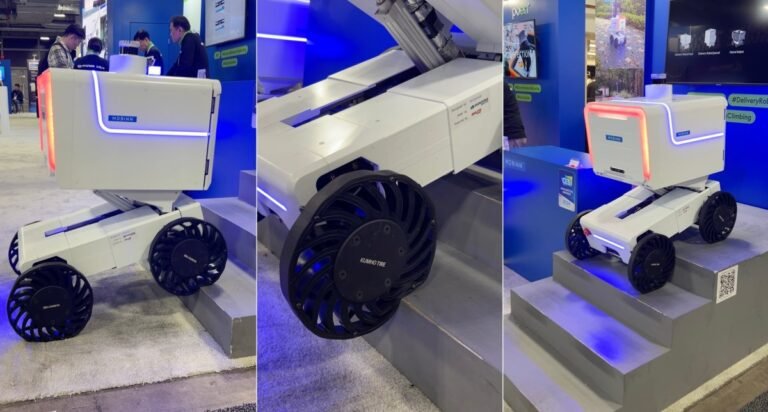
One of the easiest shots to take at the delivery bots some of us see trundling around techy cities is that they can’t climb stairs, curbs, or any other minor obstacle that even a slug could handle.
Mobinn, a new spinoff from Hyundai, has seemingly solved this using a set of flexible wheels that can take it up stairs with ease.
They showed off their delivery bot at CES 2024 in Las Vegas.
Stairs and curbs are the bane of many a delivery bot, and generally the solution has been to avoid them.
Mobinn’s pitch deck also shows that they are working on wheelchair and other mobility options, but so far it seems the delivery bot is the first out the door.
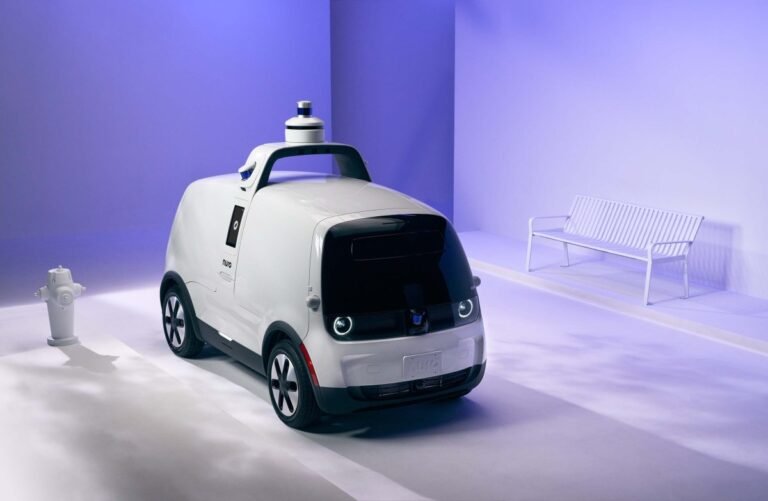
Autonomous delivery startup Nuro has struck a deal with safety-focused software company Foretellix to help with virtual testing of its automated driving system, in a bid to cut R&D costs while still pushing the technology forward.
The partnership, which the companies are set to announce later Thursday, comes in the wake of a tumultuous stretch for Nuro.
Many companies developing automated vehicles have their own simulation software; Foretellix specializes in generating millions of scenarios to test autonomous software, lowering the burden on the in-house teams.
Foretellix’s software is able to “automatically analyze” driving logs from Nuro test vehicles and re-run those drives in simulation many times over.
This allows Nuro’s automated system to encounter many different versions of a drive without the hardship – and most importantly, time – required to run all those variations in the real world.













